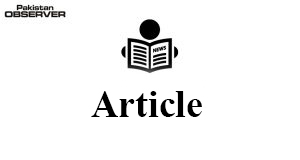Iqbal Khan
PAKISTAN has globally raised the issue of Indian atrocities and the human rights’ situation in the IoK since 05 August. The international response, so far, has not been adequate enough to even revert the draconian measures undertaken by India, what to talk of putting India on notice for giving right of self-determination to Kashmiri people. This is not just Pakistan’s concern but of all those who believe in the rule of law and human rights. Following the unilateral illegal action by India on 05 August 2019 leading to one-sided annexation of India- occupied Kashmir (IoK), Pakistan has extensively shared its concern and fear with international organizations. Pakistan has amplified the voice of the suffering Kashmiri people and raised the conscience of international community to the atrocities perpetrated by the Indian government.
Since 05 August, Foreign Minister has written seven letters to the President of the United Nations General Assembly, the Security Council and the UN High Commissioner for Human Rights, keeping them updated on the evolving situation in IOJ&K. In September 2019, in his address to the UNGA, Prime Minister Imran Khan extensively highlighted the Jammu & Kashmir issue and the danger its non-resolution presented to regional as well as global peace and security. Pakistan has raised awareness of Hindutva-driven policies of the present government in India. These efforts have helped in placing the Jammu & Kashmir dispute in the centre of international discourse. Subsequent actions taken by Modi govt related to Citizenship Amendment Act and the National Register of Citizens have vindicated Pakistan’s position internationally.
Organization of Islamic Cooperation (OIC) has consistently supported Pakistan on the Jammu and Kashmir dispute. Two meetings of the OIC Contact Group on Jammu & Kashmir have been convened since 05 August. An emergency session of the OIC Contact Group on Jammu & Kashmir was called on Pakistan’s request on 06 August 2019 as a result of which the OIC’s Independent Permanent Human Rights Commission (IPHRC) had delivered a strong statement condemning India’s atrocities in IOJ&K. Second meeting was held in New York on the sidelines of the 42nd UNGA session which issued a strong Ministerial Communiqué. IPHRC has recently held an unprecedented public session on human rights situation in IOJ&K. A special session of OIC Foreign Ministers’ is a work in progress. Pakistan also presented its case in the 42nd session of the United Nations Human Rights Council. Joint statement on Jammu & Kashmir was delivered on behalf of over 50 countries on 10 September 2019. Humanitarian nightmare in IOJ&K, characterized by a continued military lockdown and complete communication blackout, is approaching the mark of 155 days. On the side-lines of Global Refugee Forum, Prime Minister Imran Khan met Michelle Bachelet, UN High Commissioner for Human Rights in Geneva and briefed her on the devastating impact of India’s over four-month long inhuman lockdown..
Two successive public hearings on human rights situation in IOJ&K were held in the US Congress. The Tom Lantos Congressional Committee on Human Rights undertook detailed debate on the situation in November 2019. Two draft resolutions have been tabled by US House of Representatives. So far, over 80 members of US Congress have issued statements expressing concern over the situation in IOJ&K. Kashmir issue was raised in other Parliaments as well, including UK, EU, France, Iran and so on.
Pakistan’s Ambassador to the US Dr Asad M Khan in his 02 January Op-ed in The Hill, captioned as “The US should work to counter India’s actions against the people of Kashmir”, has commented about prolonged humanitarian crisis in India-occupied Kashmir. “As Americans everywhere celebrated the holidays, India’s lockdown and military siege of Occupied-Kashmir will have been going on for nearly 150 days. Since its beginning on 05 Aug, when India revoked the region’s special autonomous status, the siege has had devastating effects on Kashmiris”. A recent article by Reuters reveals that the lockdown has cost Kashmir’s economy more than $2.4 billion, with the head of the Kashmir’s Chamber of Commerce and Industry warning that “this crisis will further intensify in 2020.”a recent New York Times piece notes that “India tops the world by far in the number of internet shutdowns imposed by local, state and national governments.” Another subsequent editorial by Washington Post asked “how long a country that follows this sinister path can truly be called a democracy at all?”
However, despite widespread criticism from global human rights groups, editorial boards, and within the Congress, some in the US may still believe that India is a good faith, credible actor when it comes to Kashmir, and that Kashmir is an “internal” matter for India to handle. The EU is also of the view that revocation of Article 370 was an internal matter of India. Any faith in India’s credibility as a force for good in Kashmir is misplaced. India’s credibility on Kashmir went out of the window when it decided to unilaterally abrogate the rights of millions of Muslim Kashmiris, ignored international law, poured hundreds of thousands of regular troops into the region and then thumb its nose at the near universal international condemnation that followed. Kashmir has been the subject of tens of UN Security Council resolutions, specifically stating that Kashmir issue needs to be resolved through a plebiscite under UN auspices. India’s disregard for universal human rights and shameful humanitarian crisis that it has set off in Kashmir are reasons enough for the whole world to be involved in ending this tragedy. Pakistan will continue to extend moral political and diplomatic support to be the voice of Kashmiris at every forum.
—The writer is a freelance columnist based in Islamabad.










